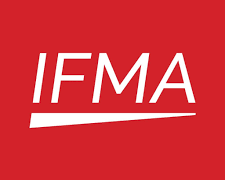The Arlington, Virginia, USA-headquartered Global Cold Chain Alliance (GCCA) has published findings of its membership survey regarding the impact that the novel coronavirus (SARS-CoV-2, which causes the Covid-19 respiratory disease) pandemic has had on their businesses. GCCA operators of refrigerated warehouses store over 260 billion pounds of perishable foods each year, and generate estimated revenues $6.1 billion per annum.
“This data provides important insights for the global cold chain industry,” said Jason Troendle, the GCCA’s director of market intelligence and research and author of the report. “There is no other research focused on the effects of the pandemic on our industry. We hope this information is helpful for all our members to understand what is happening across the industry, assist companies’ plans for future operational changes, and be prepared for other crises that may crop up.”
Key findings of this research include the following:
- Business challenges. The biggest challenge cited by operators was supply chain disruptions (e.g. keeping up with demand surge, slowdowns in foodservice, production/manufacturing challenges), which was confirmed by slightly over 50% of all respondents.
- Responses. The top Covid-19 mitigation response was to take extra measures to protect the workforce (staggered shifts, social distancing, remote working). The next-highest issues were maintaining overall business continuity and workforce morale.
- Impact on Revenue. Comparing actual Q1/Q2 revenue vs. Q1/Q2 pre-crisis revenue expectations, 54% of all respondents reported some type of a decrease, 11% saw no change, and 35% reported an increase in receipts. Respondents believe the next six months may look very similar to the past few months.
- Increased Costs. Approximately 80% of respondents indicated an increase in costs, with the most common uptick between 1-5% increase.
- Government Priorities. Respondents indicated access to PPE and cleaning as the top priorities they would like to see governments focused on, followed closely by financial support for employees as well as employers in the cold chain industry.
- Changing Business Operations. Measures taken to reduce person-to-person contact to slow the spread of the virus caused operational changes across the cold chain. While these measures were done out of necessity, the changes also provided an opportunity to adjust or try new processes or controls that if effective and efficient may remain in place after the Covid-19 pandemic is over. Fifty-three percent of respondents believe the percentage of employees working remotely will increase. Pre-pandemic work-from-home rates averaged 4.5% of their workforce. That has increased to 19.8% during the pandemic, and there is an expectation that about 10.6% of the workforce will continue to work remotely. This could lead to an increase of 6.1% of the workforce working remotely in the future.
- Industry Trends. About three quarters of all respondents think that the pandemic will cause an increase in the growth rate of e-commerce/direct-to-consumer delivery of frozen and/or chilled product. Even stronger demand for data and predictive analytics is expected in the future, and respondents are optimistic that the growth rate of the industry as a whole will be even more significant because of the pandemic. Conversely, 73% of respondents believe that global trade opportunities will either decrease or remain the same relative to pre-pandemic expectations.
About the Survey
The Global Cold Chain Alliance received 170 responses (representing 31 countries) to a survey questionnaire sent to members between April 28 and May 11, 2020, capturing qualitative data from GCCA member companies. The sample included warehouses, industry suppliers, asset and non-asset-based transportation operators, and construction (design/build/thermal envelope) contractors.
The figure below shows characteristics of the responding companies. For those identifying as warehouse, approximately 64% operate 1-5 facilities, 24% have 6-20, and 12% operate 20 or more facilities.






